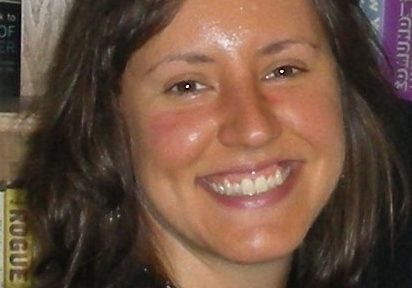By Asynith Palmer, Technical Writer in Residence at University of Maryland Baltimore County and Information Developer at AMP Systems, LLC. Dr Palmer received her PhD in English from the University of Michigan in 2014.

I have been a full time consultant since earning my PhD in English Language & Literature in 2014. I carry two business cards. One reads, “Technical Writer in Residence – University of Maryland Baltimore County (UMBC)” and the other, “Information Developer – AMP Systems, LLC.” In both roles I serve as a persuasive professional writer. At UMBC, I help STEM departments strengthen their proposals, publications, and pedagogy. “STEM” stands for Science, Technology, Engineering, and Mathematics. Notably absent from the acronym is any nod to the Arts and Humanities. Yet, my Humanities training is my greatest asset as a technical writer.
As Technical Writer in Residence at UMBC, I apply close-reading and focused analytic writing to give STEM Departments an edge in proposals, publications, and pedagogy. Last week, I gave a crash course to mechanical engineers on writing effective lab reports, edited a manuscript describing a novel protein-production method, and synthesized a new framework for a proposal to fund undergraduates’ hands-on experience with rapid prototyping. There is a common theme to these collaborations: faculty and students need to express their ideas clearly and explain their innovations in order to receive funding. However, given the rigorous nature of the STEM curricula, the study of writing gets sidelined. My work brings the Humanities back into the “hard” sciences, to make these disciplines—in their writing, teaching, and project design—more agile and expressive. Far from “soft,” the Humanities are flexible and enabling.
At AMP Systems, I apply my close-reading and analytic writing skills to a range of projects. AMP is an IT services provider, supporting the information technology needs of government, businesses, and non-profits organizations. I help these customers write. This might mean editing a government agency’s formal responses to a legislative audit, helping forensic engineers compose expert reports for product liability cases, or curating the website for a cancer treatment foundation. Writing across disciplines and economic sectors energizes me.
Delving into a variety of projects might appear unrelated to the specialized work of dissertating. When people ask me what I did in graduate school, I give a quick, content-specific response: “I did 20th-century American literature.” But, really, my grad-school experience was tremendously varied. I taught writing to undergraduates in diverse disciplines; workshopped seminar papers with poets and critical theorists; and researched industrial ruin in blogs, fiction, and photography. The English Department honed my ability to write across genres, but I did not realize this until I stepped out of the Department and into an engineering lab.
I remember the day that I stopped thinking of myself as a literary content specialist. I was studying for my comprehensive exams when a friend in the Mechanical Engineering Masters program at UMBC asked me to copy-edit one of his thesis chapters. While I had never taken an engineering course, I felt ready for the challenge. To prepare for my exams, I was charging through complex texts: reading one critical-theory article every day and one book of fiction every two. This mode of inquiry primed me to read quickly, identify key questions, and synthesize a critical response. Editing a thesis on carbon nanotubes felt surprisingly do-able: unfamiliar but akin to the fast-paced, high-level research I was already doing. I helped my friend tighten the links between his evidence and conclusions, and learned about a novel composite material.
This friend was working for a nanotechnology lab, and made a case for hiring me as a contractor. In the hours approved by the English Department for outside work, I became an in-house writer and editor for the lab. Writing was crucial to this technical enterprise: for publishing research, securing funding, and protecting its intellectual property. It was exciting to help technical specialists translate their experience from the confines of the lab into white papers, publications, and patent documentation. Without any prior engineering knowledge, I was able to learn on the job—well enough to explain a novel manufacturing process to research scientists and investors to help secure their partnership. I had “learned” Michel Foucault and Gertrude Stein under similar conditions.
As I was forging my research path in English, I had discovered a parallel path as a writing consultant. When I introduced myself as a technical writer to the researchers who visited our lab, they often breathed a sigh of relief. I began to see writing as a critical limiting factor for many fields outside of the Humanities. Viable, worthy projects do not receive funding if their plans and future impacts are not clearly expressed. A writing consultant is an enabler, in the best sense.
More Alumni Voices
[rpwe limit=”100″ thumb=”true” length=”20″ thumb_height=”100″ thumb_width=”100″ thumb_align=”rpwe-alignleft” cat=”20″ excerpt=”true” readmore=”true” readmore_text=”Read More »”]


